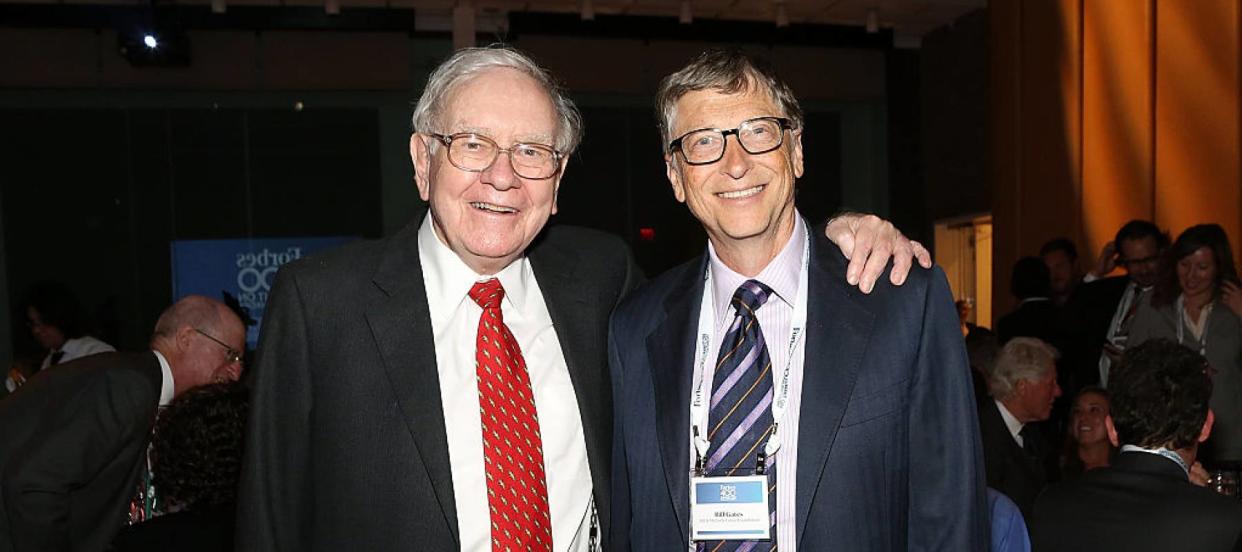‘Only morons pay the estate tax': America's wealthy seniors use these 2 savvy tactics to shelter their fortunes from Uncle Sam — how to make them work for you too

When the U.S. Navy made headlines in 1985 for spending $600 apiece on toilet seats, the story came to symbolize how the government flushes your money away. Four decades later, U.S. taxpayers have hardly budged in their contempt for revenue collection, especially regarding the dreaded estate tax.
Not exactly known for its warm and fuzzies, the Internal Revenue Service minces no words describing it: “a tax on your right to transfer property at your death.” And: “It consists of an accounting of everything you own.” Yikes. Thus with the twin certainties of death and taxes, the IRS makes it clear that the former does not kill off the latter.
Don't miss
Jeff Bezos told his siblings to invest $10K in his startup called Amazon, and now their stake is worth over $1B — 3 ways to get rich without having to gamble on risky public stocks
Car insurance rates have spiked in the US to a stunning $2,150/year — but you can be smarter than that. Here's how you can save yourself as much as $820 annually in minutes (it's 100% free)
These 5 magic money moves will boost you up America's net worth ladder in 2024 — and you can complete each step within minutes. Here's how
But while no one avoids death, you can legally put your estate taxes to rest. That’s huge, given that history’s greatest transfer of wealth is about to occur between baby boomers — who control a staggering $75 trillion of the nation’s wealth — and their descendants, says Forbes reporter Matt Durot. In a recent YouTube report, Durot recalls former Goldman Sachs president Gary Cohn’s quip: “Only morons pay the estate tax.” And yes, you can join the ranks of U.S. billionaires who don’t plan to pay it, either.
Philanthropy: Giving to avoid giving up
Cohn, who is 63, is at retirement’s gateway age and has an estimated net worth of more than $350 million, so no wonder he wants to keep his estate untouched. (He was also a lead sponsor of Road to 2092, a Harvard competition to save Social Security.) The good news for Cohn — and all of us — is that politicians, regulators and judges have watered down the estate tax since 2000.
Back then, the married couple threshold — the amount after which an estate would owe the government money — was $1.35 million, according to the non-profit Tax Foundation. In 2024, the IRS threshold is $27.2 million, a jump of more than 20 times.
That may sound like a pretty high hurdle for Uncle Sam to clear, but let’s say you own a successful small business. You could hit that threshold fast and so the need to protect that money.
One way the rich ditch estate taxes is through philanthropy, and it’s also a sure way to generate applause. Durot cites The Giving Pledge, which 104 American billionaires worth roughly $1.5 trillion have signed since 2010. Famous signatories like Bill Gates, Melinda French Gates and Warren Buffett have committed to giving away most of their fortunes.
Read more: The 5 most expensive mistakes in options trading and how to avoid them
Why the GRAT is great
Another popular method among the wealthy is the grantor retained annuity trust (GRAT). While the name reeks of jargon, it’s the smell of sweet success to those seeking to pass on their riches to family. It can be used as a holding pen where real estate, stock shares or other assets can appreciate without counting toward estate tax limits.
Mark Zuckerberg, who placed pre-IPO Facebook shares in a GRAT in 2008, had accumulated an estimated $37.3 million by 2012, Forbes reported. It may sound shady but it isn’t: The Facebook CEO’s paperwork “read like a playbook of how the ultra-rich and even the moderately wealthy can operate within the law to transfer vast sums and preserve assets–from the tax man and from creditors.”
Not a tax, but significant expenses to avoid one
Durot notes that the drawback to avoiding estate taxes, and not necessarily a cheap one, is that it takes lawyers, accountants and financial experts to put key strategies into action. That could be regarded as the rich transferring money to the rich, but many wealthy people view their efforts in philanthropy, for example, through a simple lens. Their favorite charities, they reason, will spend their money far more effectively than the government.
You don’t need to sit on an expensive throne to buy into that logic, whether you define that in terms of the seat of an ultra-wealthy magnate, or the squat of a Navy private.
What to read next
Car insurance premiums in America are through the roof — and only getting worse. But 5 minutes could have you paying as little as $29/month
Thanks to Jeff Bezos, you can now use $100 to cash in on prime real estate — without the headache of being a landlord. Here's how
'It's not taxed at all': Warren Buffett shares the 'best investment' you can make when battling rising costs — take advantage today
This article provides information only and should not be construed as advice. It is provided without warranty of any kind.
